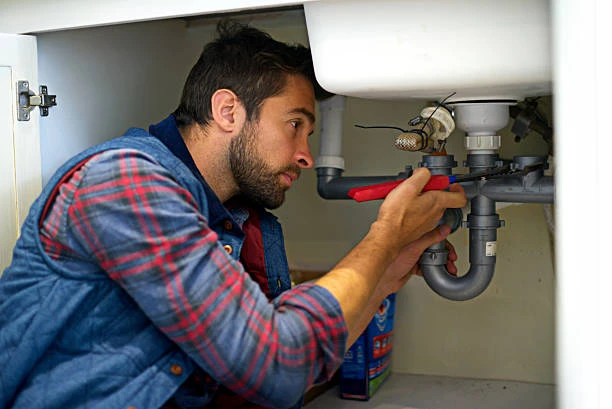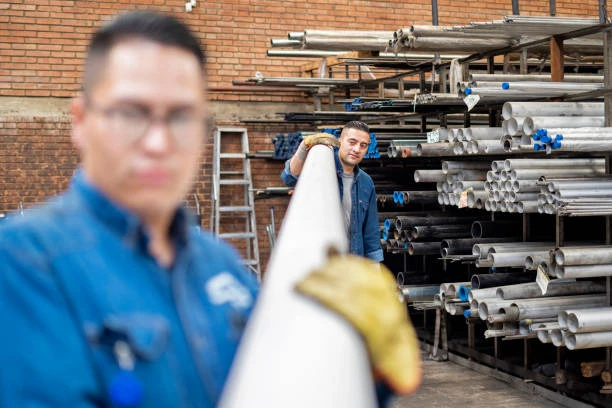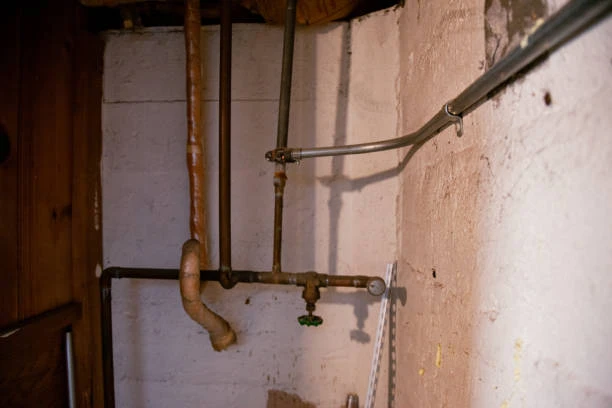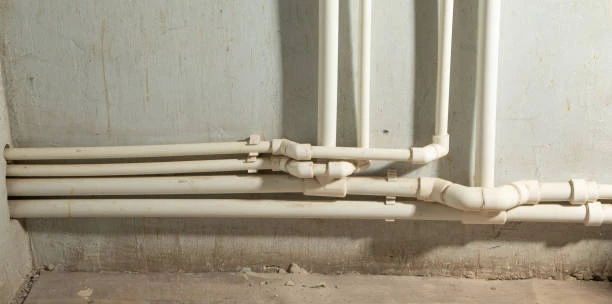Big Collection of Faucet Maintenance Tips
A reliable tap for kitchen is essential for everyday tasks like cooking, cleaning, and drinking water. Over time, taps can develop leaks, suffer from limescale build-up, or simply lose their smooth operation due to wear and tear. To help homeowners and professionals maintain the performance and appearance of their kitchen taps, this guide offers a complete set of faucet maintenance tips. From understanding internal components like brass valves to choosing the right products and avoiding common installation mistakes, we’ve covered everything you need to know for long-lasting tap performance and trouble-free maintenance.
Frequently Asked Questions (FAQ)
1. Why does my kitchen tap drip constantly?
A constant drip is often caused by worn washers or cartridges inside the tap. These components regulate water flow and, when damaged, allow water to escape even when the tap is turned off.
2. Can I clean a kitchen tap without damaging the finish?
Yes. Use a soft cloth with mild soap and avoid abrasive cleaners or hard-bristle brushes. For limescale, apply a vinegar solution and rinse thoroughly.
3. How often should I maintain my kitchen tap?
Inspect your tap every six months. Clean aerators, check for leaks, and tighten any loose connections. Preventative maintenance extends the tap’s lifespan.
4. What are signs that my tap’s internal valve needs replacing?
Signs include difficulty turning the handle, inconsistent water pressure, or leaks from the base. These symptoms often mean the internal valve is worn or corroded.
5. Are all taps for kitchen use the same size?
No. Taps come in various sizes and styles. Always check the mounting hole diameter and height to ensure compatibility with your sink and countertop.
Brass Valves: Definition and Characteristics
The brass valve is a vital component inside most kitchen taps. It controls the water flow by opening or sealing the passage inside the tap body. Made from a copper-zinc alloy, brass valves are known for their durability and resistance to corrosion.
Key Features of Brass Valves:
Strength and Durability: Brass handles water pressure and daily use without deformation.
Corrosion Resistance: Brass does not rust, making it ideal for kitchen environments where moisture is common.
Smooth Operation: Well-crafted brass valves offer precise control with minimal effort.
Long Lifespan: Unlike plastic components, brass lasts for years with proper maintenance.
Thermal Stability: Suitable for both hot and cold water systems, brass does not crack under heat changes.
These characteristics make brass valves the preferred internal mechanism in quality kitchen taps.
Common Applications and Industries
Brass valves and kitchen taps serve a wide range of sectors beyond just homes. Their functionality, hygiene, and durability make them suitable for multiple uses.
Typical Applications:
Domestic Kitchens: Everyday use for food preparation and dishwashing.
Restaurants and Cafés: Require reliable, high-pressure taps with long service lives.
Hospitals and Clinics: Taps with brass valves maintain hygiene and resist contamination.
Industrial Kitchens: Heavy-duty valves handle constant water flow and high temperatures.
Hotels and Hospitality Venues: Stylish taps that blend form with function.
In all these cases, a well-maintained kitchen tap ensures safe, efficient, and comfortable water access.
Buying Guide: Choosing the Right Tap for Kitchen Use
Selecting a kitchen tap involves more than just picking a design. You need to consider function, compatibility, material, and compliance to get lasting value.
1. Material Matters
Choose taps made from solid brass for the internal body. Avoid plastic or zinc alloy taps for high-use areas like kitchens.
2. Valve Type
Look for taps with ceramic disc valves or brass cartridges, which provide smoother operation and less wear over time.
3. Finish and Colour
For aesthetics and maintenance, go for PVD-coated finishes. Options include chrome, brushed nickel, matte black, or gold, each suited to different kitchen styles.
4. Water Pressure Compatibility
Not all taps work with low-pressure systems. Ensure the model matches your water supply’s pressure level.
5. Certifications
Trust products with certifications such as ISO, NSF, or WRAS. These ensure the tap meets international or national safety and performance standards.
Installation Guidelines for Kitchen Taps
Proper installation is essential to prevent leaks and ensure long-term tap performance. Whether you’re installing a new tap or replacing an old one, these tips can help.
Shut Off Water Supply: Always turn off the hot and cold water before starting.
Clean the Sink Area: Remove dirt and debris from the mounting hole.
Use the Right Tools: Use adjustable spanners and pipe wrenches with cloth wraps to avoid damaging finishes.
Apply Sealants Carefully: Use PTFE tape on threaded joints to prevent leakage.
Align Correctly: Ensure the tap is properly aligned before tightening the base nuts.
Test Thoroughly: Turn the water on slowly and check for any leaks or pressure issues.
Proper installation ensures the tap’s functionality and helps maintain its appearance over time.
Brass vs Plastic Valves: Which Is Better?
Choosing between brass and plastic valves inside a kitchen tap can affect its durability, performance, and overall value. Here is a clear comparison to help you decide.
| Feature | Brass Valves | Plastic Valves |
|---|---|---|
| Durability | Long-lasting and wear-resistant | Can degrade or crack over time |
| Corrosion Resistance | High – resists rust and mineral build-up | Moderate – vulnerable to chemicals |
| Temperature Tolerance | Suitable for both hot and cold water | May warp under high temperatures |
| Cost | More expensive, but offers long-term value | Lower cost, but shorter lifespan |
| Maintenance Frequency | Rarely needs replacement | Needs more frequent servicing |
| Environmental Impact | Recyclable and sustainable | Less eco-friendly, typically disposable |
In most cases, brass valves are the superior option for kitchen taps, offering long-term savings and consistent performance.
Conclusion
Maintaining a tap for kitchen use involves regular inspections, occasional repairs, and smart choices when buying or replacing components. Understanding how taps work and the role of elements like brass valves can prevent common problems such as leaks, low pressure, or early failure. Whether you are renovating your kitchen or simply fixing a dripping tap, choosing quality materials, installing them correctly, and following a proper maintenance routine will keep your tap functioning beautifully for years to come. With these practical tips and insights, your kitchen tap can remain both a functional tool and a stylish centrepiece.
Connect with IFAN
IFAN is a leading Chinese manufacturer with 30 years of expertise in plastic pipes, fittings, and valves. We offer high-quality copper fittings, brass valves, and piping systems designed for global markets. If you’re looking for reliable solutions for residential, commercial, or industrial plumbing, IFAN can meet your requirements with products that combine quality, affordability, and certification compliance.
Contact IFAN Today:
- For more information,pls visit our webside https://waterpipefitting.com/
Pls Mailto: [email protected]
Whatsapp: +86 15088288323
We respond to emails and faxes within 24 hours and are available to answer your questions by phone at any time.
IFAN Product International Standards
At IFAN, all products conform to a wide range of international and national standards, including:
ISO 15874, EN 15874, ASTM F2389, DIN 8077/8078, GB/T 18742, NBR 15884, ISO 15494, EN ISO 15494, GB/T 19472, NBR 15494, ASTM 2846 (501), DIN 8079/8080 (502), ASTM F441/F441M SCH80 (503), DIN (504), DIN (505), GB/T 18993, AS/NZS 1477, CSA B137.6, NSF/ANSI 14, TIS 17-2532/1131-2535, BS 3505, BS 4346 (801), ASTM D1785 SCH40 (802), ASTM D1785 SCH80 (803), DIN (804), GB (805), GB (806), GB(901), DWV(902), ASTM D2665 (903), along with ASTM D2241, D2665, D2729, and F441/F441M series, ISO 1452, EN ISO 1452, DIN 8061/8062, GB/T 10002, AS/NZS 1477, JIS K6741, CSA B137.3, and other global standards.
These ensure that every IFAN product meets safety, performance, and environmental guidelines wherever you operate.














Recent Comments